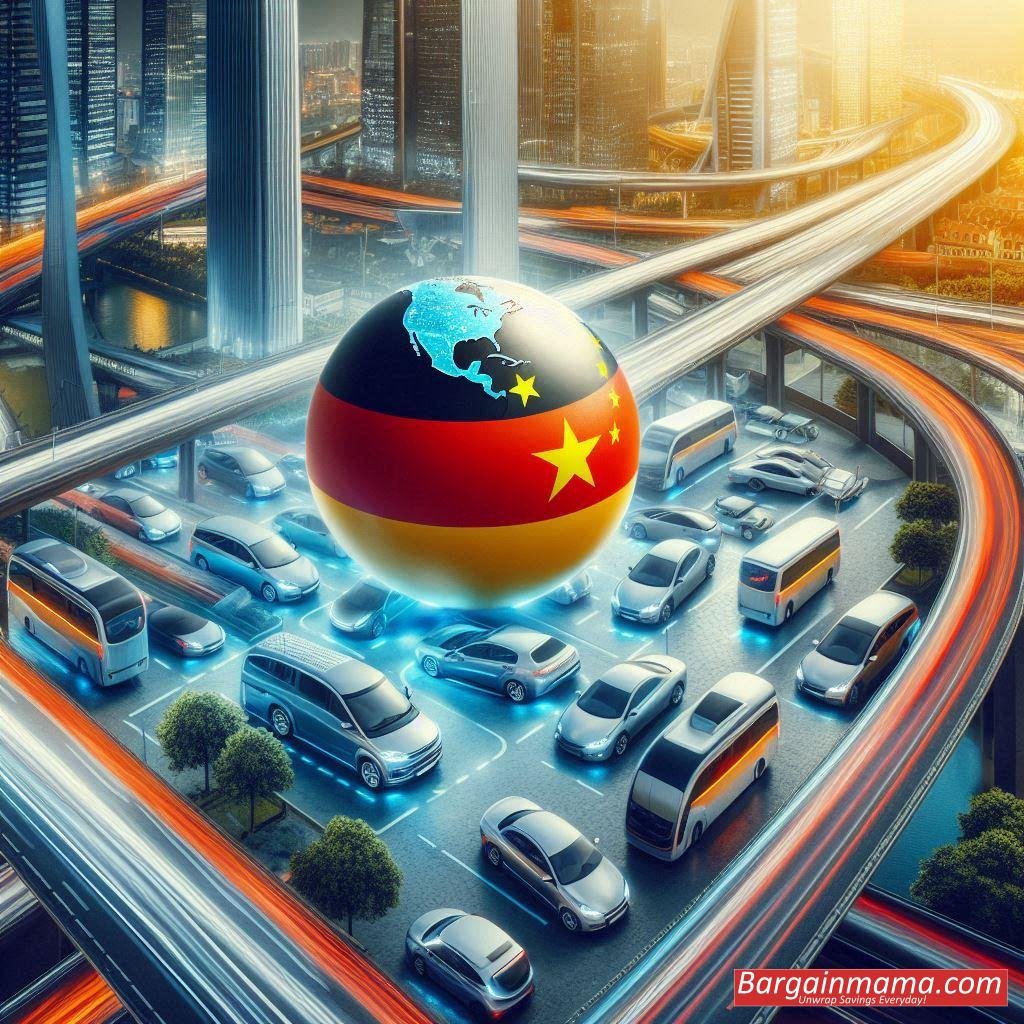Beijing – China has suggested possible advantages for Germany’s luxury automobile makers if Berlin can convince the EU to revoke the proposed levies, in an attempt to strategically avoid looming European Union (EU) tariffs on Chinese electric cars (EVs). Sources close to the discussions claim that in exchange for the EU removing its planned duties on Chinese electric vehicle imports, China is thinking about lowering its 15% tariffs on large-engine automobiles.

Wang Wentao, China’s commerce minister, alluded to the potential for these rewards on Saturday in Beijing at a meeting with Robert Habeck, his colleague from Germany. Habeck was in the second-largest economy in the world for three days, and this encounter was one of them. The visit comes after a recent proposal by the EU to raise tariffs on Chinese electric vehicles (EVs) to as much as 48% later this year.
The European Commission defends the planned tariffs by claiming that they are a countermeasure to Beijing’s substantial state subsidies to its electric vehicle (EV) producers, which it claims distort the market. Chinese producers are able to undercut European rivals by offering cheaper pricing thanks to these incentives. The goal of the tariffs is to balance off the subsidies and establish fair competition.
Nonetheless, political forces have the potential to affect the legal foundation of these levies. Berlin is being urged to use its power within the EU by the Chinese government, which is headed by President Xi Jinping, using threats as well as rewards. In the past, Beijing had alluded to the prospect of levying a 25% tax on large European automobiles, a move that would have a substantial effect on German luxury manufacturers like BMW AG and Mercedes-Benz Group AG.
The European Commission is faced with a difficult predicament. Germany, which has already stated that it opposes the tariffs, may be persuaded to put pressure on the EU executive body and other member states by its robust automotive sector. Due to its big economy, Germany has significant influence on EU policy choices.

Requests for comments on these developments have not received a response from China’s Ministry of Commerce or the European Commission. The German Ministry of Economy likewise declined to corroborate Wang’s remarks.
The Hinrich Foundation’s head of trade policy, Deborah Elms, said that talks are still open. “The European Union may choose to defer the implementation of tariffs until after the conclusion of negotiations,” she stated. “The clock can be stopped as long as both sides are moving in the right direction toward a resolution.”
The EU’s trade commissioner, Valdis Dombrovskis, and his Chinese colleague had a “candid and constructive” video conference over the weekend, which is coinciding with this haggling in Beijing. During the ongoing inquiry, this conversation was a rare opportunity for senior officials from both sides to speak with one another directly.
“The two sides agreed to engage on the basis of facts and in full respect of WTO rules,” said European Commission spokesman Olof Gill. The European Union highlighted the need for any negotiated resolution to its probe to effectively address the harmful subsidization.
Reversing the tariffs would be a strong message for China to other major economies. For example, Canada is considering imposing comparable taxes on Chinese electric vehicles (EVs), imitating the US and the EU, where President Joe Biden has declared a 100% tariff on these goods.
Chinese authorities, including state-run media and other connected parties, have been stepping up their threats against European goods like Spanish ham, French cognac, and German large-engine cars, as well as industries like aviation, in recent months.
China wants to use bilateral pressure to split EU member states and transform the talks into a commercial negotiation. The European Union (EU) is amenable to strategies that would have the same impact as countervailing tariffs, provided that they adhere to WTO regulations.
One suggestion is for China to replace tariffs with self-imposed limitations on its exports of electric vehicles, although it is uncertain that this will satisfy WTO regulations. The EU informed EV producers earlier this month that additional temporary tariffs will be implemented in July after a thorough review. These obligations will be presented by a guarantee at first, and they won’t be collected until November—only if final fees are assessed.

Specific tariff rates apply to a number of Chinese companies: BYD must pay an extra 17.4%, SAIC Motor Corp. must prepare for a 38.1% duty on top of the current 10% rate, and Geely—the company that controls Volvo Car AB—must pay an additional 20%. There is a weighted average tariff of 21% for other Chinese EV makers who complied with the investigation but were not tested, and a 38.1% levy for others.
China has denounced these actions as protectionist and devoid of objective standards, promising to retaliate by opening anti-dumping investigations against imports of brandy and pork.
China may provide more openness in the funding of industrial policies during discussions or suggest eliminating subsidies that the EU has determined to be in violation of WTO commitments. The Center for Strategic and International Studies’ Scott Kennedy, an expert on China, predicts a “11th-hour offer from China just prior to the deadline for final penalties in early November.”



